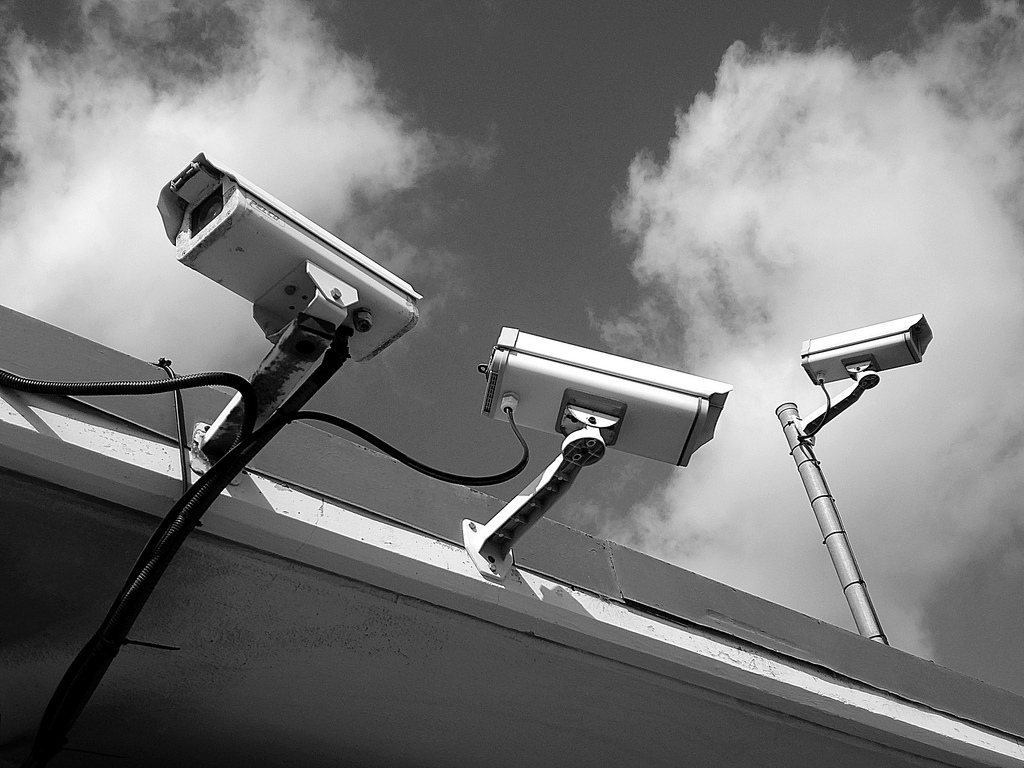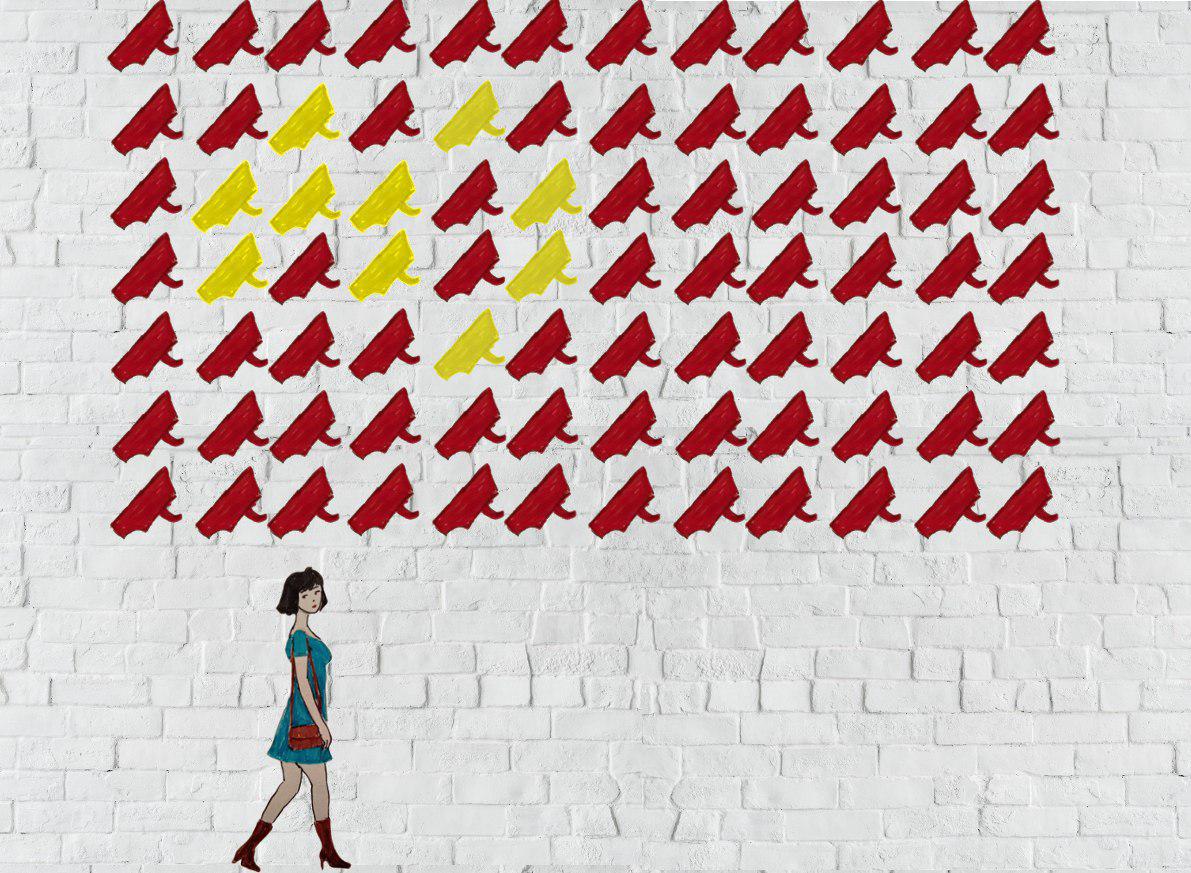Something is amiss in China. It has become a place that is the proof every paranoiac dreams of. Flocks of robotic doves surveil, and concentrate over, regions home to suppressed minorities. One of China’s most prominent movie stars is missing since 1 July after allegations of tax evasion as well as earning a 0 out of 100 on an annual “Social Responsibility Report”. Abusive crackdowns on religious practices have intensified and declarations that religions in China need to be “Sinicized” and have their foreign influence purged have been put into action; Muslims are banned from letting their children attend religious activities and are being forced—an estimated 1 million people—into “reeducation” camps; Catholic churches have been forcibly vacated and leveled by bulldozers; authorities have put up QR codes on homes in minority communities and employ high-tech mass surveillance systems, such as biometrics, artificial intelligence, phone spy ware and big data, and encourage people to spy and report on each other.

Chinese democracy
In 2014, China’s State Council formulated a plan for the implementation of a Social Credit System. This system is set to be fully standardized by 2020. The system is set to assess citizens’ and businesses’ economic and social reputation, or “credit”, where the score is based on a combination of factors drawn from thousands of items of information collected from nearly 100 government agencies—among these are medical, financial and legal records.
Ant Financial, the finance arm of e-commerce giant Alibaba, launched a product called Sesame Credit in 2015 that was China’s first effective credit scoring system functioning as a loyalty program but also as a social credit scheme. Scores are increased by so-called “positive acts”, such as paying bills on time, engaging in charities, separating and recycling rubbish, obeying traffic rules and, in some places, donating blood. A wide assortment of benefits can be reaped with a high Sesame Credit score—ranging from 350 to 950—such as no-deposit apartments, bicycle rentals, favorable rates on bank loans, free gym facilities, cheaper public transport, shorter wait times in hospitals, more matches on dating websites.
The government has clearly taken an interest in this. For example, the Chinese Supreme court shares a “blacklist” of debt defaulters and punishes them by lowering their Sesame credit scores. The courts can also introduce a recorded message on mobile phone numbers to strongarm them into paying their fines; when someone calls one of the debtors they first hear a recorded message telling them that the person they are calling has been put on a blacklist.
The harsh consequences of a low credit score are vast and serious. Millions of people have already been blocked from buying tickets for domestic flights. People who have refused to carry out military service have been barred from enrolling in higher education. People who buy too many, and spend too much time playing, video games; engage in excessive splurging or posting on social media; or—unknowingly or deliberately—spread “fake news”, can all have their internet speeds throttled. Public shaming of blacklisted citizens is also a common practice online, with several provinces taking this to the next level by using TV and LCD screens in public places to expose people. This “IT-backed authoritarianism” is unlike anything seen before.
The stories we [they] tell ourselves
Today, access to inexhaustible amounts of information has made it difficult to know where to turn to for credible news. A survey conducted in 2017 showed that 67% of Americans reported that they get at least some of their news on social media; with 20% doing so often. Of these, 45% get their news from Facebook. Facebook is known for categorizing users by political preference. Such data has been used to manipulate people and tip the scales in elections and referendums by specifically targeting people with misinformation customized to fit their profile; Cambridge Analytica was reportedly involved with the pro-Brexit campaign and Trump’s 2016 US presidential campaign. And it works.

Almost all aspects of people’s lives in China are monitored and recorded by the State. No one, who is a registered citizen, is anonymous and content is spun so that it falls in line with the sensibilities of the Communist Party. Much like how the news feeds of Facebook are personalized based on a person’s past clicks and like-behavior—effectively tailoring news stories to your biases and political leanings—China streamlines information by elimination, and this goes beyond online social media and into everyday life.
With the Chinese State’s monopoly on media distribution, it has become a case of where the exclusion of diverse sources of information and perspectives is the standard. Where liberty is concerned, disobedience and public dissent are constitutive. The freedom of the press and the state of a functioning free democracy are known to be strongly correlated. When dissidence and access to free, reliable media are heavily suppressed, the resulting vacuum becomes breeding ground for propaganda, falsehoods and hearsay.
The Agonist
George Orwell wrote in his essay “The Freedom of the Press” from 1945, “The enemy is the gramophone mind, whether or not one agrees with the record that is being played at the moment.” If one doesn’t know, or can’t know, what one doesn’t know, how susceptible do we become to the whims of those who would abuse their power? The glaring and perhaps demoralizing response to this can be met with yet another question: Who, then, is best equipped to carry the burden of proof? With the proliferation of misleading or completely fabricated information disguised as news distributed and shared on a mass scale, the role of the independent news institutions becomes even more important. If liberty means anything at all it means the right to tell people what they do not want to hear. Even if it’s dangerous.
Related articles:
Your Privacy on Sale – the Commercial Spyware Market
Photo Credits:
Under Surveillance, Rebeca Padilla López, 2018, All Rights Reserved
Surveillance Cameras, Jay Phagan (CC BY 2.0)









